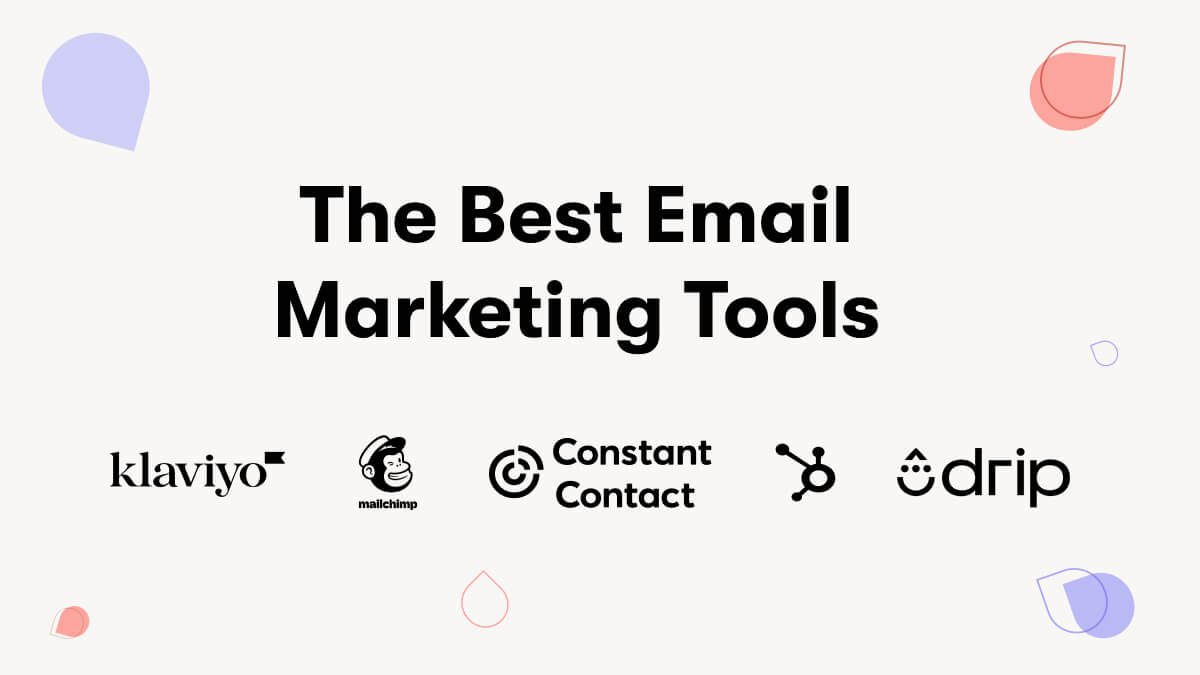Compliance and data protection are critical for every business. They ensure safety and trust.
In today’s digital world, businesses handle vast amounts of data. Protecting this data is not just a legal obligation; it is also essential for maintaining customer trust and business reputation. Compliance with data protection laws helps avoid hefty fines and potential legal issues.
This guide will help business owners understand the basics of compliance and data protection. It will provide practical tips and insights to secure your business data. Whether you run a small startup or a large corporation, understanding these principles is crucial. Let’s dive into the essentials of keeping your business compliant and your data safe.

Credit: privacypillar.com
Table of Contents
ToggleImportance Of Data Protection
Data protection is crucial for business success. It ensures that sensitive information remains secure. Protecting this data helps prevent breaches and cyber attacks. This, in turn, safeguards the company’s reputation. Let’s dive into the importance of data protection.
Legal Implications
Businesses must follow data protection laws. These laws vary by region. Failing to comply can result in hefty fines. Legal actions can also tarnish a company’s image. Compliance shows that a business respects privacy rights. It also demonstrates responsibility and professionalism.
Customer Trust
Customers value their privacy. They trust businesses that protect their data. When customers feel safe, they are more likely to stay loyal. A breach of trust can lead to lost customers. Protecting data builds a positive reputation. This, in turn, attracts new customers.
Understanding Compliance Requirements
Compliance is essential for every business. It ensures that your business follows all laws and regulations. Understanding compliance requirements can be challenging, but it is necessary for data protection and avoiding penalties.
Key Regulations
Businesses must follow several key regulations to stay compliant. These regulations vary by country and industry. Here are some important ones:
- General Data Protection Regulation (GDPR): Applies to businesses in the EU and those handling EU citizens’ data.
- California Consumer Privacy Act (CCPA): Protects the privacy of California residents.
- Health Insurance Portability and Accountability Act (HIPAA): Ensures the protection of health information in the United States.
Industry Standards
Besides regulations, businesses must also follow industry standards. These standards ensure best practices in data protection. Some common industry standards include:
- ISO/IEC 27001: A standard for managing information security.
- Payment Card Industry Data Security Standard (PCI DSS): Ensures secure handling of credit card information.
- National Institute of Standards and Technology (NIST): Provides guidelines for improving cybersecurity.
Understanding these regulations and standards is the first step to compliance. Stay informed and updated on any changes. This will help protect your business and your customers’ data.
Developing A Data Protection Policy
Creating a data protection policy is crucial for any business. It helps safeguard sensitive information and ensures compliance with regulations. This policy outlines how your company will handle data. It also addresses potential risks and sets guidelines for employees.
Policy Components
Start by identifying the types of data your business collects. Include personal data, financial information, and other sensitive data. Define how this data will be stored, accessed, and protected. Outline procedures for data sharing and data disposal. Make sure to comply with relevant laws and regulations.
Include a section on data breaches. Describe the steps to take if a breach occurs. This should cover how to notify affected parties and authorities. Also, specify the measures to prevent future breaches.
Employee Training
Training employees is essential for effective data protection. Educate them on the importance of data security. Provide clear guidelines on handling sensitive information. Regular training sessions can help reinforce these practices.
Ensure employees know the policies and procedures in place. They should understand their role in protecting data. Offer resources and support to address any questions. Regular updates on new threats and prevention methods are also important.

Credit: www.amazon.com
Implementing Security Measures
Implementing security measures is vital for data protection and compliance. Business owners must prioritize this to safeguard sensitive information. Effective security measures include encryption methods and access controls. These ensure data integrity and confidentiality.
Encryption Methods
Encryption is crucial for protecting data. It converts information into unreadable code. Only authorized users can decode it. There are two main types of encryption: symmetric and asymmetric.
Symmetric encryption uses the same key for encryption and decryption. This method is fast and efficient. Common symmetric encryption algorithms include AES and DES.
Asymmetric encryption uses two keys: a public key and a private key. The public key encrypts the data, and the private key decrypts it. This method is more secure but slower. RSA is a popular asymmetric encryption algorithm.
Encryption helps protect data during transmission and storage. It prevents unauthorized access and ensures data privacy.
Access Controls
Access controls limit who can view or use data. They are essential for maintaining data security. There are different types of access controls, including physical and logical.
Physical access controls restrict access to buildings and rooms. Examples include security guards, locks, and biometric scanners.
Logical access controls restrict access to computer systems and data. Examples include passwords, user IDs, and multi-factor authentication.
Role-based access control (RBAC) is a common method. It assigns permissions based on user roles. This ensures users only access data relevant to their job.
Effective access controls help prevent data breaches. They ensure only authorized users can access sensitive information.
Data Breach Response Plan
Every business owner must have a data breach response plan. This plan helps manage data breaches effectively. It ensures quick actions and protects sensitive information. A good plan minimizes damage and maintains trust.
Immediate Actions
First, identify the breach source. Stop any ongoing data loss. Secure affected systems to prevent further damage. Assess the extent of the breach. Determine which data was compromised. Involve your IT team immediately. Document all actions taken.
Notification Procedures
Inform your data protection officer. Notify affected individuals promptly. Transparency is key. Inform relevant regulatory authorities. Follow legal requirements for reporting breaches. Communicate clearly and honestly. Provide guidance to affected individuals. Offer support and resources.
Regular Audits And Assessments
Regular audits and assessments are vital for maintaining compliance and data protection. These processes help identify vulnerabilities and ensure adherence to regulations. Business owners should prioritize both internal audits and third-party assessments to safeguard their data.
Internal Audits
Internal audits involve a thorough review of your company’s data protection policies. They are conducted by your own staff. Regular internal audits help ensure that your business follows the set protocols. They can uncover any gaps in your data protection measures. By addressing these gaps, you can prevent data breaches and maintain compliance.
Internal audits also help in training your team. Your staff becomes more aware of their roles in data protection. This awareness strengthens your overall data security. Conduct these audits at least once a year to stay updated.
Third-party Assessments
Third-party assessments bring an external perspective to your data protection efforts. These assessments are conducted by experts outside your company. They provide an unbiased review of your compliance and data protection measures. Third-party assessors can identify issues that internal teams may overlook. Their expertise ensures a comprehensive evaluation.
These assessments often include penetration testing and security audits. They check for vulnerabilities that could be exploited by hackers. Regular third-party assessments enhance your data protection strategy. They give your clients confidence in your commitment to their data security. Schedule these assessments annually or as required by regulations.
Maintaining Compliance
Maintaining compliance is crucial for any business. It ensures that your company follows legal standards and protects sensitive data. This section will discuss the importance of continuous monitoring and updating policies to maintain compliance.
Continuous Monitoring
Continuous monitoring is vital to keep up with changes in regulations. It helps identify potential risks before they become issues.
Here are some steps to implement continuous monitoring:
- Regular Audits: Conduct audits to check compliance with current laws.
- Automated Tools: Use software to monitor data access and usage.
- Employee Training: Train employees on new regulations and compliance practices.
Continuous monitoring ensures your business stays compliant and avoids legal issues.
Updating Policies
Updating policies is necessary to reflect changes in laws and regulations. Outdated policies can put your business at risk.
Here are some guidelines for updating policies:
- Review Existing Policies: Check if current policies align with new laws.
- Consult Legal Experts: Get advice from legal experts to ensure compliance.
- Communicate Changes: Inform employees about policy updates and provide training.
Updating policies keeps your business compliant and protects it from legal risks.
Maintaining compliance involves continuous monitoring and updating policies. These steps help safeguard your business and sensitive data.
Leveraging Technology
Leveraging technology is crucial for businesses aiming to stay compliant and protect data. Modern tools can simplify these processes. They can reduce human error and save time. Here, we explore two essential technologies: compliance software and data protection tools. Each offers unique benefits for business owners. Compliance software helps businesses track and monitor their adherence to industry regulations, making it easier to avoid legal penalties. On the other hand, data protection tools provide encryption and secure storage solutions, ensuring sensitive information remains safe from cyber threats. In addition to these technologies, businesses can also benefit from exploring the various notetaking app options available to streamline communication and organization within their teams. By leveraging technology in these ways, businesses can ensure they are taking proactive measures to maintain compliance and protect their valuable data.
Compliance Software
Compliance software helps businesses meet regulatory requirements. It automates many manual tasks. This reduces the risk of errors. The software also keeps track of regulations. This ensures your business always stays updated. Some tools also offer audit features. These can help you prepare for external audits. With compliance software, you can manage documents easily. This ensures all critical information is readily available.
Data Protection Tools
Data protection tools safeguard your sensitive information. These tools include encryption software. Encryption ensures that data is unreadable to unauthorized users. Antivirus programs also fall under this category. They protect your systems from malware. Firewalls are another key tool. They prevent unauthorized access to your network. Regular backups are vital too. They ensure data can be recovered in case of loss. Using these tools can greatly enhance your data security.
Educating Employees
Employees play a crucial role in data protection. Educate them to avoid data breaches. Make them aware of compliance requirements. This will help in safeguarding sensitive information. Let’s explore some key methods to educate employees.
Training Programs
Training programs are essential. They provide employees with the knowledge they need. Regular training sessions can cover various topics.
- Understanding data protection laws.
- Identifying phishing emails.
- Safe internet practices.
- Handling sensitive information.
Use interactive sessions for better engagement. Include quizzes to test their understanding. Offer certifications upon completion.
Awareness Campaigns
Awareness campaigns keep data protection top of mind. They remind employees of their responsibilities. These campaigns can use different methods.
- Posters and flyers in common areas.
- Regular emails with tips and updates.
- Intranet articles and videos.
- Workshops and seminars.
Keep the content simple and clear. Use real-life examples to make the message relatable. Encourage employees to report suspicious activities.

Credit: due.com
Frequently Asked Questions
What Is Data Protection Compliance?
Data protection compliance refers to adhering to laws and regulations for handling personal data. This ensures privacy and security.
Why Is Data Protection Important For Businesses?
Data protection is crucial to safeguard customer information, maintain trust, and avoid legal penalties. It also enhances your business’s reputation.
How Can Businesses Ensure Data Protection?
Businesses can ensure data protection by implementing robust security measures, training employees, and following relevant regulations. Regular audits help too.
What Are The Key Data Protection Regulations?
Key data protection regulations include GDPR, CCPA, and HIPAA. These laws govern how businesses handle personal data.
Conclusion
Protecting data is crucial for every business owner. Ensure compliance to build trust. Regularly update your policies and practices. Train your staff on data protection. This reduces risks and promotes security. Stay informed about new regulations. Your business depends on it.
Prioritize data protection in your strategy. It safeguards your reputation and customer loyalty. Remember, a secure business is a successful business.






